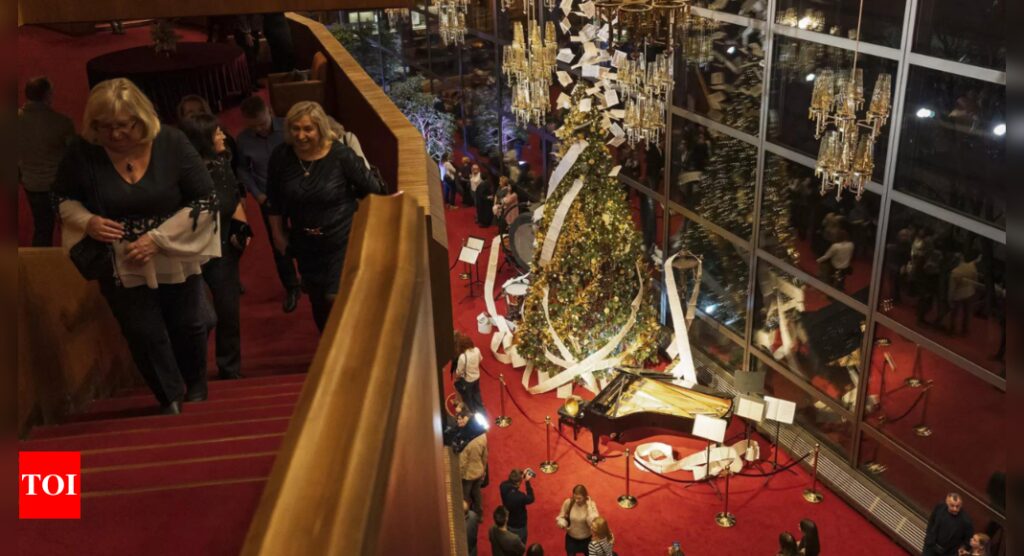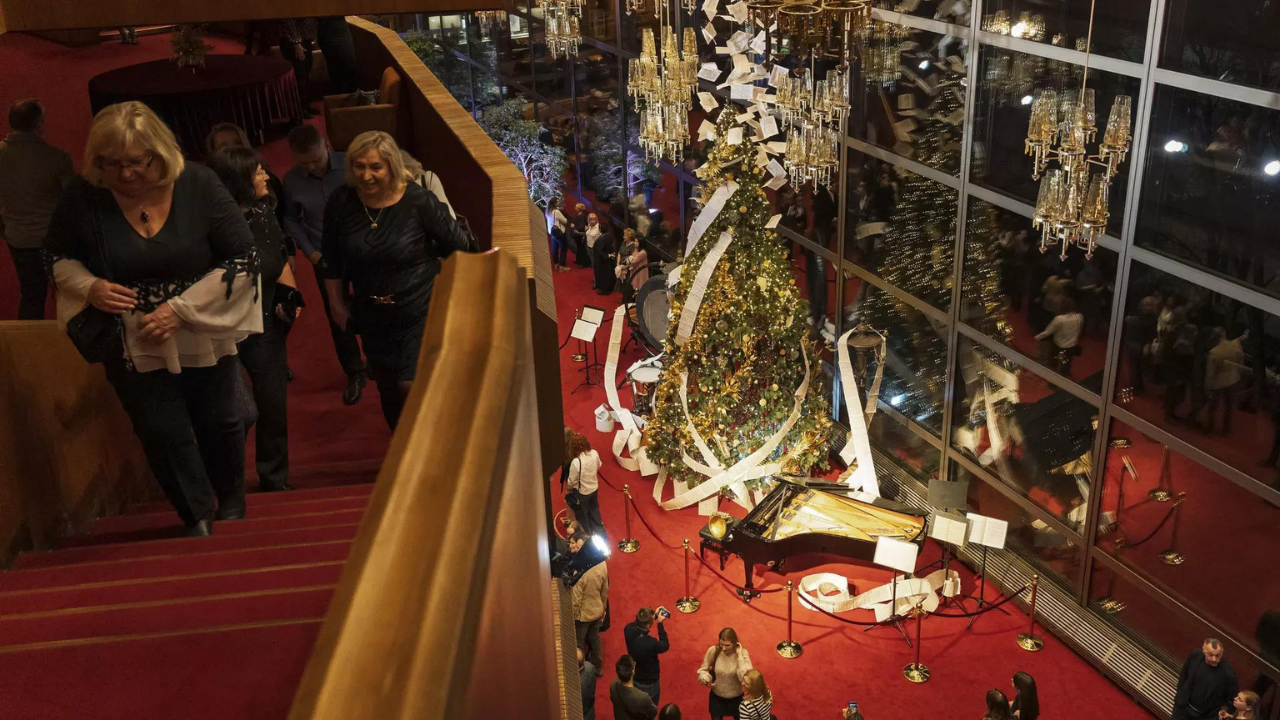VILNIUS (LITHUANIA): Unimpressed by the substitute for Pyotr Ilyich Tchaikovsky‘s “Nutcracker”, the mother and her young daughter left at the intermission, a small protest over a decision by the opera house not to perform the Russian composer’s Christmas classic. “Everything about ‘The Nutcracker‘ is much better – the music, the dance, the story,” said Egle Brediene, 38, hurrying out of Lithuanian National Opera and Ballet Theatre this past week after the first act of a replacement ballet composed by an Italian.
Lithuania, an unwavering supporter of Ukraine in the war waged by Russia, set aside Tchaikovsky and the holiday favourite two years ago after declaring a “mental quarantine” from Russian culture. That stirred grumbling by theatergoers, but their annoyance had largely calmed – until a new govt took office in Lithuania this month and a newly installed culture minister announced that he liked listening to Tchaikovsky. There was no reason, the minister, Sarunas Birutis, said in an interview, to be “afraid that after watching a Christmas fairy tale we will become pro-Kremlin.” His remarks prompted fury from supporters of Ukraine and applause from lovers of Russian music, igniting a bitter debate about whether culture and politics can be separated at a time of war. Many in the art world oppose banning works on the basis of their nationality, believing that culture has the power to unite and should not be contaminated by politics.
Darius Kuolys, a veteran of Lithuania’s struggles to break free from the Soviet Union who was the first culture minister after a 1990 declaration of independence, said it was obvious that the Kremlin often exploited culture for political ends. But he added, “It never occurred to me as a minister to tell people what to watch or listen to.” Despite a bloody crackdown by Soviet forces in Vilnius, Lithuania’s capital, in Jan 1991, Kuolys did not pause performances of “The Nutcracker” or try to cancel Igor Stravinsky’s “Rite of Spring.” “We fought Soviet power to get the freedom not to ban things,” said Kuolys, 62.
Simonas Kairys, the culture minister who pushed in 2022 for the quarantine from Russian influence embedded in music, insisted that he had never banned anything and only issued “recommendations” to the national opera house and other state-funded institutions, which promptly pulled “The Nutcracker” and other Russian works.
During WWII, Britain’s National Gallery put on a series of concerts featuring German composers such as Ludwig van Beethoven. The director of the gallery at the time said that this was to show that Britain’s fight was with Adolf Hitler and the Nazis, not with Germany as a nation or culture. Fear of Russia and fury over its invasion of Ukraine, however, have led many in Lithuania and other countries with a long and bitter history of past Russia occupation to doubt that culture can be disentangled from politics. “In Russia, it’s always been mixed,” said Arunas Gelunas, director of the Lithuanian National Museum of Art. “The Kremlin has long been using classical culture to distract the eyes of the world from its atrocities.”


